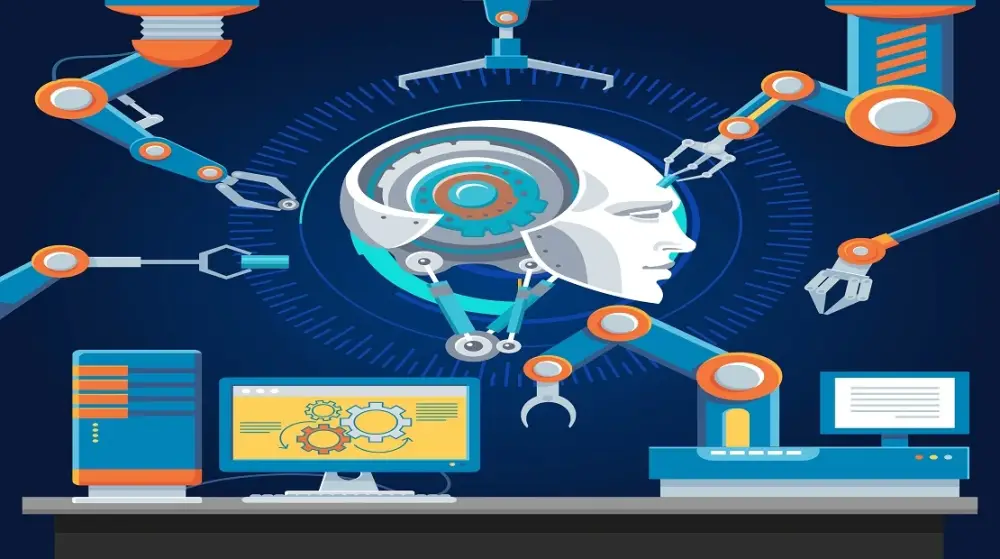The Future of CPD in Healthcare: Virtual Simulations & AI Tools
The Evolving Landscape of Healthcare CPD
The healthcare CPD future is rapidly transforming, driven by technological advancements and changing professional needs. Continuing Professional Development (CPD) plays a critical role in healthcare by ensuring compliance with regulations, maintaining patient safety, and refreshing essential clinical skills. As healthcare evolves, so too must the ways professionals stay informed and competent in their roles.
Why CPD is Critical in Healthcare
In healthcare, ongoing education isn’t just beneficial—it’s mandatory. CPD ensures that healthcare professionals stay up to date with the latest medical guidelines, treatments, and technologies. This continuous learning helps reduce errors, improve patient outcomes, and meet legal and ethical standards. Regular CPD activities refresh clinical knowledge and sharpen practical skills, making it indispensable for high-quality care delivery.
A Snapshot of How CPD is Changing in 2025 and Beyond
The landscape of healthcare CPD is shifting dramatically in 2025 and beyond. Traditional classroom training and seminars are giving way to more flexible, interactive, and technology-driven methods. Professionals now seek CPD solutions that fit into their busy schedules, offering anytime-anywhere access and personalized learning paths. This evolution is making CPD more engaging and effective than ever before.
Key Drivers: Virtual Simulations and AI Tools
Two major innovations shaping the future of healthcare CPD are virtual simulations and AI in healthcare CPD. Virtual simulations provide immersive, risk-free environments where learners can practice procedures and decision-making in real-time. Meanwhile, AI-powered tools personalize learning experiences by analysing progress and recommending targeted content. Together, these technologies promise to revolutionize how healthcare professionals develop and maintain their skills, ensuring they are better prepared for the challenges of modern medicine.
Healthcare CPD Future: Shifting from Traditional to Tech-Driven Learning
The healthcare CPD future is moving away from conventional methods towards more innovative, technology-enabled approaches. While traditional CPD methods have served healthcare professionals for decades, they come with notable limitations that are driving this shift.
Limitations of Traditional CPD in Healthcare
Traditional healthcare CPD often involves in-person workshops, seminars, or conferences that can be costly and time-consuming. Travel expenses, registration fees, and the need to take time off work create barriers to participation. Additionally, geographical limitations mean that many healthcare professionals, especially those in rural or underserved areas, face challenges accessing quality CPD opportunities. These constraints make it difficult for some to maintain consistent professional development.
The Move Towards Remote, Interactive, and Tech-Supported Learning
In response to these challenges, the healthcare industry is embracing remote and interactive learning solutions. Online courses, virtual simulations, and mobile learning apps offer flexibility and convenience, allowing professionals to learn at their own pace from any location. These tech-driven methods promote engagement through interactive content and real-time feedback, enhancing knowledge retention and practical skills.
Regulatory Bodies Encouraging Digital CPD Methods
Regulatory bodies and professional organizations are increasingly endorsing digital CPD formats as valid and effective. They recognize the value of these methods in supporting lifelong learning and improving healthcare outcomes. This encouragement helps drive the adoption of innovative tools that align with modern work patterns and learning preferences.
One such innovation is AI in healthcare CPD, where artificial intelligence personalizes learning experiences, recommends relevant content, and tracks progress to optimize professional development. As the healthcare sector evolves, integrating AI and digital tools into CPD programs will become essential for maintaining competence and delivering high-quality care.
Dive deeper with our What is CPD? explainer
The Role of Virtual Simulations in Modern Healthcare CPD
Virtual simulations are revolutionizing healthcare CPD by offering highly effective training methods that combine technology and realism. Understanding what these simulations are and how they work sheds light on their growing importance in professional development.
What Are Virtual Simulations and How Do They Work?
Virtual simulations are computer-generated environments that mimic real-world clinical scenarios. Using advanced software and sometimes virtual reality (VR) headsets, learners can interact with virtual patients, medical equipment, and clinical settings. These simulations recreate realistic situations, allowing healthcare professionals to practice skills and decision-making without any risk to actual patients.
Realistic Clinical Environments for Training Without Patient Risk
One of the most significant advantages of virtual simulations is the ability to create lifelike clinical settings where healthcare providers can experiment and learn safely. Whether it's managing a cardiac arrest or performing a complex surgical procedure, simulations provide an opportunity to refine techniques and build confidence. This “safe space” approach eliminates the fear of causing harm, encouraging learners to explore different approaches and learn from mistakes.
Examples of Simulation-Based CPD
Virtual simulations are used across various areas of healthcare CPD. Emergency response training allows practitioners to rehearse critical interventions under pressure. Surgical techniques can be practiced repeatedly to improve precision and efficiency. Diagnostic simulations help professionals sharpen their assessment and decision-making skills in complex cases. These varied applications demonstrate the versatility and effectiveness of simulation-based learning.
Benefits: Safe Practice, Repeatability, Immersive Learning
The benefits of virtual simulations include the ability to practice skills repeatedly until mastery is achieved, immersive and engaging learning experiences, and the elimination of risk to real patients. By integrating virtual simulations into CPD, healthcare professionals gain hands-on experience that translates into better patient care and enhanced clinical competence.
Find out how CPD Programs can boost your future
AI in Healthcare CPD: Personalised, Predictive & Powerful
Artificial intelligence is transforming healthcare CPD by making learning more personalized, efficient, and data-driven. By integrating AI technologies, healthcare professionals can benefit from tailored educational experiences that address their unique needs and career goals.
How AI Enhances CPD Course Delivery and Learning Experiences
AI-powered platforms analyse individual learner behaviour, preferences, and performance to create adaptive learning pathways. This ensures that each healthcare professional receives content that is relevant to their skill level and areas for improvement, optimizing learning efficiency. AI can also automate administrative tasks, allowing learners to focus more on acquiring knowledge and less on course logistics.
Examples of AI in Healthcare CPD
- Adaptive Learning Platforms: These platforms use AI algorithms to adjust course difficulty in real-time based on learner responses. If a user struggles with a topic, the system provides additional resources or practice opportunities, creating a truly personalized learning journey.
- Virtual Patient Case Studies: AI-driven simulations generate dynamic virtual patient scenarios that evolve based on the learner’s decisions. This interactive experience helps develop critical thinking and clinical reasoning skills in a safe environment.
- Real-Time Feedback and Assessment Tools: AI tools can instantly evaluate performance during quizzes or simulations, offering constructive feedback and highlighting areas for improvement, which accelerates learning and retention.
- Predictive Analytics for Identifying Skill Gaps and Future Training Needs: By analyzing data across multiple learners and clinical settings, AI can predict emerging skill gaps and recommend timely training interventions, helping healthcare professionals stay ahead in their fields.
The integration of AI in healthcare CPD represents a powerful step forward, offering smarter, more responsive, and highly effective professional development solutions for the evolving demands of healthcare.
Advance your career with CPD Diplomas
Benefits of Embracing Tech-Driven CPD in Healthcare
As healthcare continues to evolve, embracing technology in professional development has become essential. The shift toward tech-driven CPD in healthcare offers numerous advantages that improve learning outcomes and make ongoing education more accessible for professionals worldwide.
Scalability and Accessibility for Healthcare Professionals Globally
One of the biggest benefits of tech-driven CPD is its scalability. Online platforms and digital tools allow healthcare workers from all regions—whether urban or remote—to access high-quality courses and resources. This global reach helps reduce disparities in education access, ensuring that all professionals have the opportunity to update their skills and knowledge regardless of location.
Time-Saving and Cost-Effective Solutions
Tech-driven CPD programs save time by enabling learners to study at their own pace and on their own schedule. This flexibility is particularly valuable for healthcare professionals with demanding workloads. Additionally, digital courses often reduce or eliminate costs related to travel, accommodation, and printed materials, making professional development more affordable and convenient.
Better Engagement and Retention of Knowledge
Interactive elements such as virtual simulations, quizzes, and multimedia content increase learner engagement, leading to better knowledge retention. Tech-driven CPD can cater to different learning styles and preferences, enhancing understanding and encouraging active participation compared to traditional passive learning methods.
Meeting Regulatory CPD Requirements in a Flexible Way
Healthcare regulatory bodies increasingly accept digital CPD activities as part of mandatory professional development. Tech-driven CPD platforms make it easier to track, document, and submit CPD credits, helping professionals stay compliant with licensing requirements without disrupting their schedules.
By adopting tech-driven CPD in healthcare, professionals can enjoy a more accessible, efficient, and effective way to maintain competence and improve patient care in a rapidly changing healthcare environment.
Challenges and Considerations for Healthcare Organisations
As healthcare organisations increasingly adopt digital and AI-powered CPD solutions, they must navigate several important challenges to ensure successful implementation and long-term benefits.
Ensuring Data Privacy and Compliance
One of the foremost concerns is protecting sensitive data. With the rise of AI tools in healthcare CPD, organisations must adhere strictly to data privacy regulations such as GDPR and HIPAA. Patient information and learner data must be securely handled to maintain confidentiality and avoid breaches. Ensuring compliance requires robust cybersecurity measures, regular audits, and transparent data management policies.
Training Staff to Adopt and Trust New Technologies
Introducing new technologies often meets resistance from staff accustomed to traditional learning methods. Healthcare organisations must invest in comprehensive training programs to help employees feel confident using digital CPD platforms. Building trust in these tools is critical, and organisations should provide ongoing support, demonstrate the benefits clearly, and encourage feedback to improve user experience.
Aligning Digital CPD with Professional Standards and Learning Outcomes
Another key consideration is ensuring that digital CPD courses meet established professional standards and learning objectives. Healthcare professionals rely on CPD to maintain licensure and competency, so course content must be relevant, accredited, and aligned with industry requirements. Organisations should work closely with regulatory bodies and accreditation agencies to validate their CPD offerings.
Addressing these challenges and considerations for healthcare organisations is essential to maximize the potential of digital CPD. By prioritizing data security, fostering user adoption, and maintaining high educational standards, healthcare providers can effectively harness technology to enhance professional development and ultimately improve patient care.
Discover our CPD short courses today
How CPDCourses.com Supports the Future of Healthcare CPD
CPDCourses.com is at the forefront of advancing healthcare professional development by offering innovative, accessible, and accredited learning solutions tailored to the evolving needs of the industry.
Overview of CPDCourses.com's Healthcare CPD Offerings
CPDCourses.com provides a broad selection of healthcare CPD courses designed to meet the demands of modern healthcare professionals. The platform offers flexible, online training that allows learners to complete courses at their own pace, fitting CPD activities into busy schedules without compromising on quality. From fundamental clinical skills to advanced healthcare technologies, the courses cover a wide range of essential topics.
AI-Powered Online Courses, CPD-Accredited and Accessible Worldwide
One standout feature is the integration of AI-powered learning tools that personalize the educational experience. These tools adapt to the learner’s progress and recommend relevant content, making training more efficient and effective. All courses are CPD-accredited, ensuring they meet professional standards and count towards mandatory CPD requirements. Additionally, being accessible worldwide means healthcare professionals across different regions can benefit from high-quality education without geographical restrictions.
Emphasis on Modern Topics: Digital Health, Virtual Care, AI in Clinical Decision-Making
Recognizing the shifting landscape of healthcare, CPDCourses.com places special emphasis on contemporary and emerging subjects such as digital health, virtual care, and AI in clinical decision-making. These topics equip learners with knowledge critical for navigating today’s healthcare challenges and innovations, preparing them for future practice environments.
By combining cutting-edge technology with accredited content, CPDCourses.com supports the future of healthcare CPD by enabling professionals to stay current, competent, and confident in their roles.
Conclusion
The healthcare CPD future is digital, immersive, and powered by intelligent technologies like AI and virtual simulations. These innovations are reshaping how healthcare professionals learn, making education more accessible and effective than ever. To stay competitive and provide the best care, professionals must embrace these advances and continually update their skills.
Explore virtual and AI-powered CPD courses designed to prepare you for tomorrow’s healthcare challenges. Start your journey today by visiting CPDCourses.com and staying ahead of the curve with future-focused professional development.




